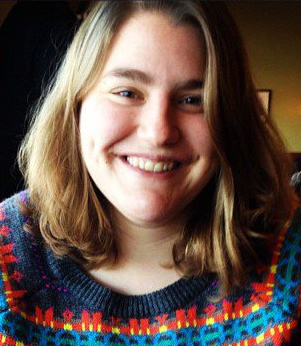Member Spotlight
Brianne Gutmann
University of Illinois at Urbana-Champaign
Urbana, IL
When I was in the eighth grade, I had the warmest and funniest math teacher. She would let me stay after school to work on homework and listen patiently to the dramatic turmoil of being a middle school girl. I decided right then that I wanted to teach middle school math. That is, until I took physics and decided that I wanted to teach high school physics, instead. Then, when I did my undergraduate degree in physics at Carleton College, I was again inspired by the care that my professors took in helping us learn content and confidence, so maybe I would enjoy being a professor? My life has been heartened by wonderful people, who cared about learning and teaching, but ultimately cared about me. I know that I have been lucky to have these people and have always wanted to emulate that care; I want to give back a little piece of it, to see my students as individuals and be a fierce ally to them in whatever ways I can.
My graduate research at the University of Illinois focuses on a preparatory course for the engineering sequence; I work with Tim Stelzer to try to increase retention for students who self-identify or are identified by a placement test as being underprepared for calculus-based physics. The main tool we’ve been using to help students is mastery-style online homework, which allows them to spend variable amounts of time with material via testing, correctives, and retesting, until students can master each topic. Especially because the course draws students from different high school experiences, this provides students support to practice the things they’re not familiar with, while not forcing them to spend too much time on topics they already understand.
Beyond my research, I am dedicated to creating welcoming and inclusive spaces within our physics department, the wider physics community, and my local community. I’m a co-founder of our local physics mentoring program, Illinois GPS, which matches undergraduates to graduate student mentors. Illinois GPS was specifically created to act as an anchor for students, particularly transfer students, first-generation students, and underrepresented minorities in physics, and is part of a larger network of sites dedicated to equity in STEM, The Access Network. Further, as a founding member of our graduate student diversity committee, I helped institute microaggressions training for incoming graduates, a journal club to discuss oppression within academia, and an LGBTQ+ Ally training for faculty.
As someone who spent the first few years of graduate school closeted, I decided later that it was important for me to be visible for others. Within our department, I created and manage a private group of graduates and undergraduates for LGBTQ+ Coffee Hours. As a teacher, I try to be visible, too. Before classes start, I email to ask students their pronouns, favorite music or movies, worries about the class, etc. I think it creates a nice precedent for openness, gives me a touchstone to the media that resonates with them, and attempts to communicate that any answer is okay. While I teach, I try to do a lot of passive signaling; I carry around a big rainbow cat mug, which serves the dual purpose of tea and conversation-starter.
I think it’s extremely important for scientists to be outspoken about our academic culture: about mental health, about oppressive structures, about who is not being heard, and the danger of silence in the face of everyday injustices. Creating community and holding each other accountable is a powerful tool. As I move forward, I’m looking for ways to combine my focuses and use my research to promote inclusive spaces. My involvement with AAPT and the PER community led me to The Access Network, which has given me an excess of role models and friends who combine the domains of research and equity successfully. Before joining the community, I didn’t know that was possible, and it has been invaluable to see strong people in our field work for change.


